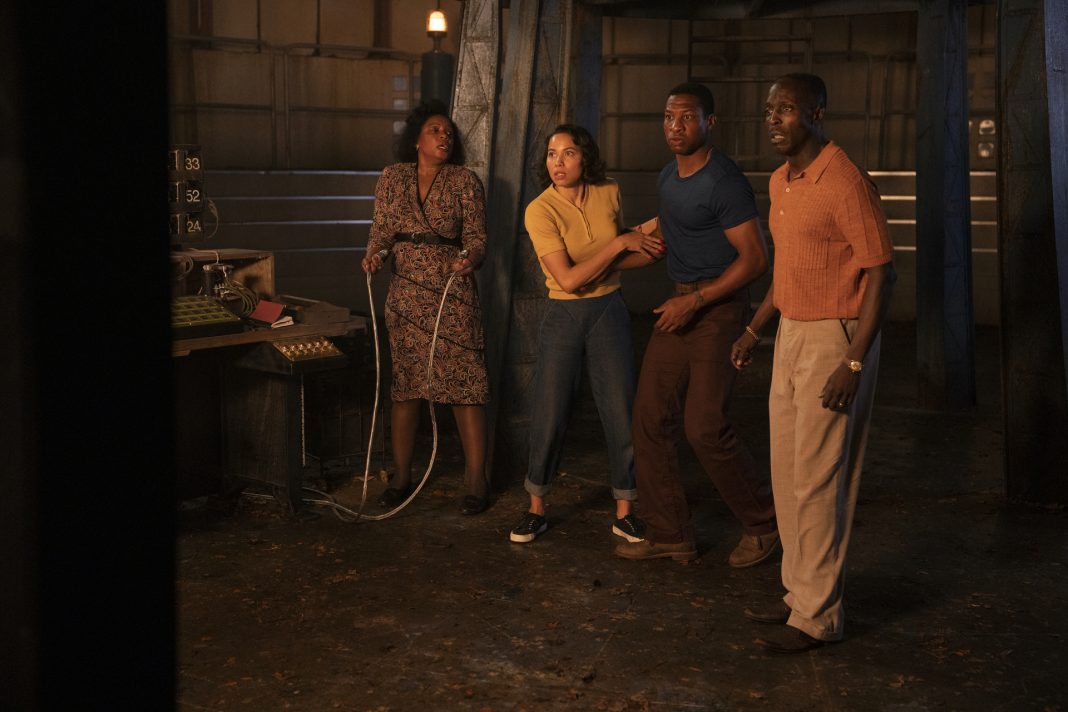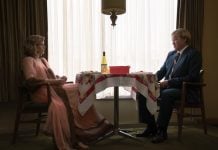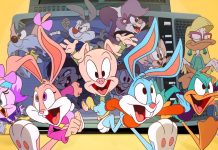For its ten-week run, HBO’s Lovecraft Country was the show that dominated Sunday night television and Twitter discussions. Audiences were caught up in the lives of Atticus (Johnathan Majors), Leti (Jurnee Smollett), Ruby (Wunmi Mosaku), Hippolyta (Aunjanue Ellis), and Montrose (Michael K. Williams) weekly. Created by Misha Green, and based on the book of the same name by Matt Ruff, Lovecraft Country is a multi-genre show where the characters are constantly tested, placed in dangerous situations that challenge who they are as individuals and as a family.
As actors, the cast themselves were challenged especially during the darker and more inspiring elements of the show, and recently I briefly spoke with them to ask about using their own experiences and history during filming.
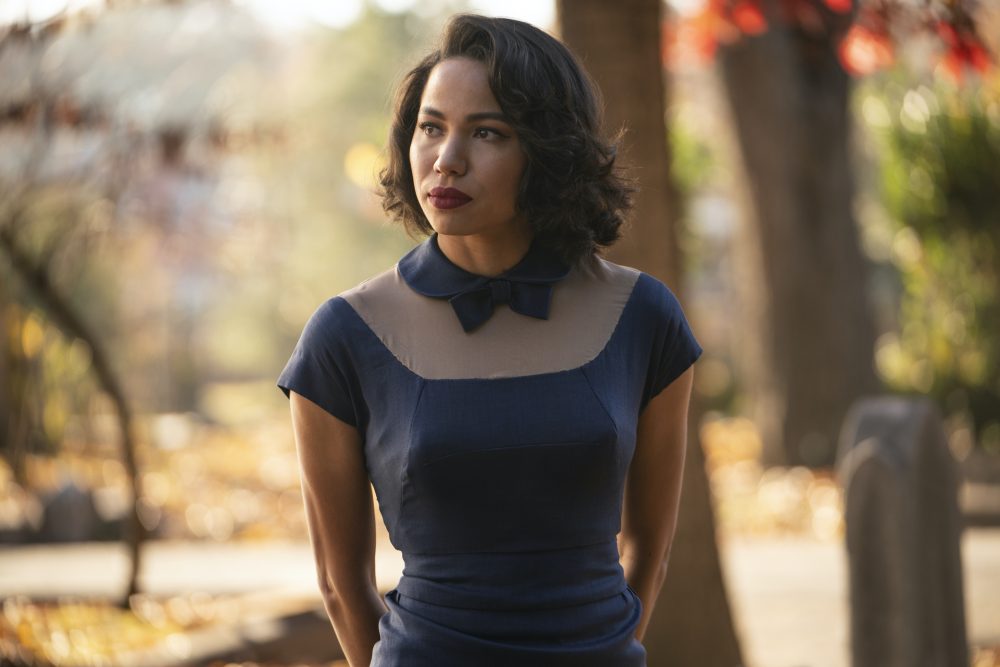
Carolyn Hinds: Because Lovecraft Country has had such a big impact and following on social media, what has it been like for you as a performer, and personally to see this level of social engagement?
Smollett: “I mean, it’s been quite fulfilling you know. I live-tweet every Sunday, so I’m getting real-time responses, as it’s happening, and it’s been amazing to see the overwhelming response towards the show. Just overwhelmingly positive. It feels very necessary, you know? It feels like it’s been the disruption that we are all craving to see reflected in art. The thing about Lovecraft is it’s very bold in the way it deconstructs this classic genre that we’ve been left out for so long, and I just love every week seeing folks tweet things that they learned, or you know, snapshotting a page from Wikipedia about it, or referencing the Gordon Parks images.
“It’s quite nurturing for me as an artist to see the work impacting folks on such a meaningful level. It’s just an honor to be a part of a show that feels very disruptive; that feels very radical. That centers our voices in such a way, and confronts so many timely themes that we as Black Americans have to face with.”
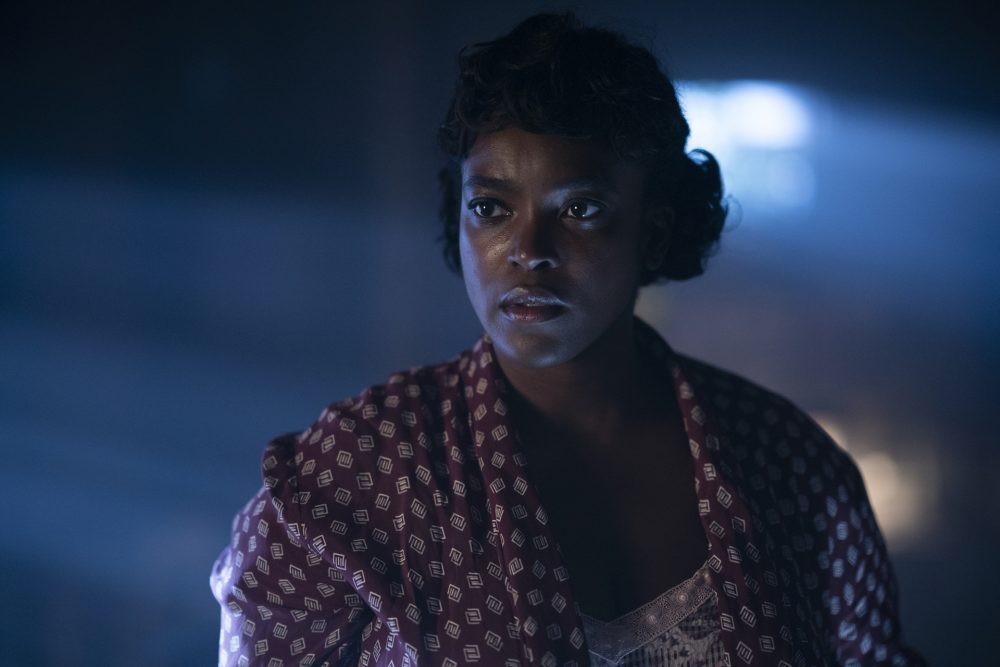
Hinds: What was it like going through this extreme parallel of who Ruby is as an individual, and also the person she was as Hillary, a white woman doing what she wanted to do?
Mosaku: “I feel like Ruby…she is someone who deserves so much because she’s brilliant! She works really hard. She’s talented. She’s confident. She knows her worth, and when she gets this opportunity to explore what life is like on the other side of the race line, I think, first of all, she’s frightened by it because it’s terrifying and different and bonkers. But then, the thing that really moved me initially was the fact that the first day, she just went and got ice cream and sat on a bench, and spent her day uninterrupted. [She] just got to relax. She got to blend in and have a peaceful day and not just a peaceful day, I mean she didn’t have to pay for anything.
“It was a delightful day, and I think that was the thing that really struck me about playing her and that difference in their experiences. That one day she walks down the street and people are scared of her, and the next day, people are scared for her. And I really connected with that scared of her. And you know I don’t have magic, so I have no idea what it feels like the other way. And I don’t really know how to connect her and reach out.”
In episode one, the first character audiences were introduced to was Atticus Freeman, a man returning from the war, looking for his missing father. As the story progressed more about who he was was revealed.
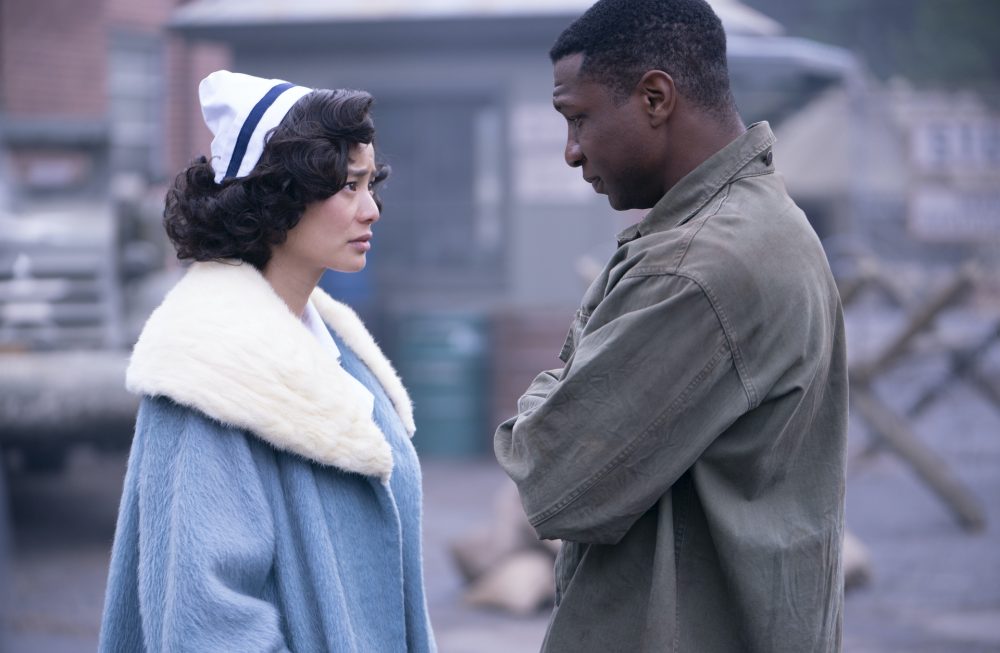
Hinds: Tic is a very complex and new character, one we haven’t really seen on primetime TV before. He’s a vet from the Korean War. He’s a nerd, a prodigious reader of multiple genres. As an actor, how do you go about processing all these facets of him as an individual with these complicated relationships with the people in his life, especially his father, and then the tension with Hippolyta later?
Majors: “Well, I think you nailed it. What I love about Tic is that you know we haven’t seen this type of character in cinema or in television before, but I think I’d be as bold to say that everybody on this call knows an Atticus. And if you know a brother or sister, you know we are very, very, very complex. Sometimes it’s the war. Sometimes it’s whatever happened in your household. Sometimes it’s being incarcerated.
“We carry all these things with us, and I think the beautiful thing about Atticus is that he really just is present in the world that he’s in. And when he comes across Hippolyta, all that history comes up. When he’s dealing with Leti all that history, and that yearning, and want, and hope comes up. For me, the beauty of it is that the role requires you to do more listening than you would think in order to be moved and shifted and changed by all these people that are around you. [In episode six,] you see that he’s been carrying that with him this entire time. For me, approaching it was really investing in each and every person, and being specific in all of those ways also diving into the literature I had to read.
“I had the privilege of reading all the [books], you know not all but a great deal of it, you know that he references; from Alexander Dumas to Edgar Burrows to H.P. Lovecraft, etc. But also reading books about the Forgotten War and really digesting those things, and then coming to work and having that great cast around me, and just playing with all those guys and investing in the team.”
In Lovecraft Country, spirituality and spiritualism of various forms played a very important part in how the characters connected to their pasts. And for some (I mean me) this particular aspect of the show is something that proved to be a bit difficult, due to cultural and religious upbringings. I asked Williams how his own Bahamian heritage influenced him on set as there were moments that were haunting and fearful for him, personally.
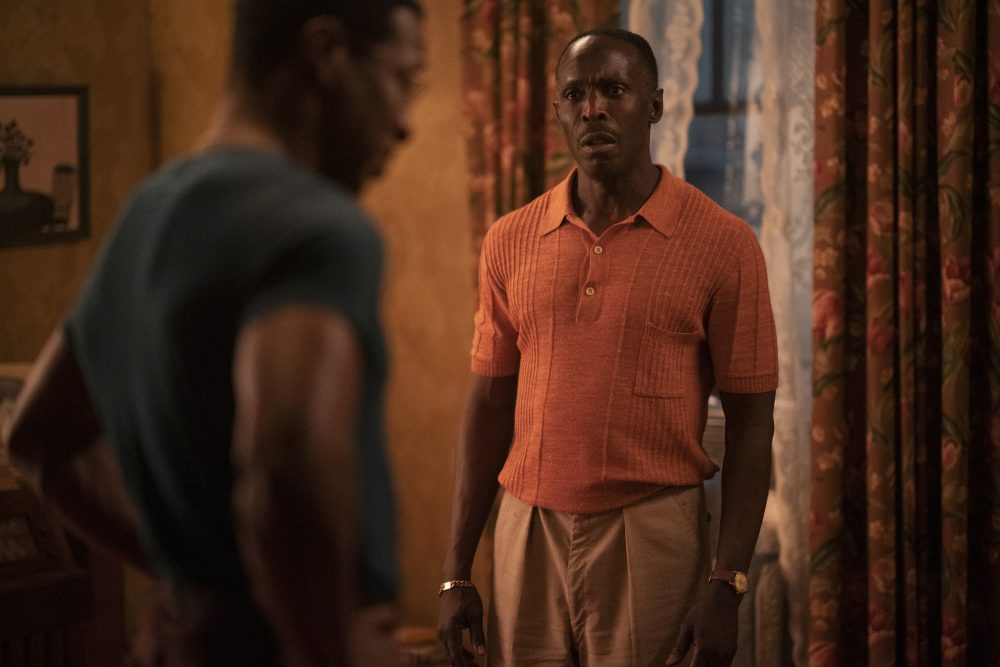
Hinds: Because of your background, playing Montrose and being in settings where, as you said, you were afraid and were in a place of vulnerability; as a performer how did you process your own emotions while preparing to get your character into a situation where you’re confronted with this spiritual side of Blackness and the Black experience?
Williams: “It was scary. There was a lot of prayer. You know there were times, even though the actual seances or the spells were a made-up language, the intent behind it was real for me. And I would [use] a lot of sage and a lot of prayer. I would always walk with my stones on set, my crystals and things of that nature to keep me grounded and not have me cross any lines for the love of the art — for the sake of the art.
There’s a scene where Montrose and Tic begin to cast the spell to start the magic. And you know what I love — just to speak about that — what I loved about this storyline in Lovecraft with the Freemans using magic, it was, in my opinion, always intended for my family, it was to protect us. It was always for good. It was for protection and for the good of the family. That’s how I saw it. But there was a scene where we’re watching them doing the magic, and we say the spell, and Montrose makes the sign of the cross, that’s not on the page. But I did it anyway.[laughs] I did it anyway, you know. So, a lot of prayer.”
Hinds: One of the main themes of the show was family legacies, and generational curses, but I want to talk about generational blessings, because what I see, with Hippolyta and Diana, is a generational blessing.
There’s a moment which I think is so beautiful in episode four where they were in the conservatory and she reveals to Diana that she named a comet, Hera’s Carriage, and we see that this was because of the connection she directly has to the stars, the past, and to these amazing entities and women in history. I see Hippolyta and Diana as the bright spark in this dark horrific saga. As a Black woman, you’re playing this mother that’s so encouraging to her daughter, what does it mean to you to play a character who has these specific moments?
Ellis: “It was my connection to Diana, and really my connection to Jada [Harris], [that] was what I love most about the act of doing acting on that series, that they are connected in so many ways that go beyond blood. And I think that Hippolyta is going to live through her daughter and she knows that. And not just in how she looks [or] how she behaves. You know we carry these things that our parents give us, these things that whether we know them or not, things that are biological that live within us. But Hippolyta is going to live through Jada in their perspective about the world. How they both live, how they both inhabit these worlds they both live in, and I think that is really, really powerful.
“And I just want to say, you said “this dark horror”, and I just want to say just really quickly, that I want to reclaim darkness. I want to reclaim it. And the reason why I say that I want to reclaim darkness is because, you know, I’m dark. And everybody I’m looking at on the screen right now is dark, and we associate darkness with something that’s negative, that’s violent. When, in fact, darkness in my life has always been this space of profound creativity. It’s at three o’clock at night when I’m at my most genius. It is at night when I am most connected, when my mother, who’s gone on, who visits me at night in the dark. And I have known profound horror in the brightest lightest and widest days.
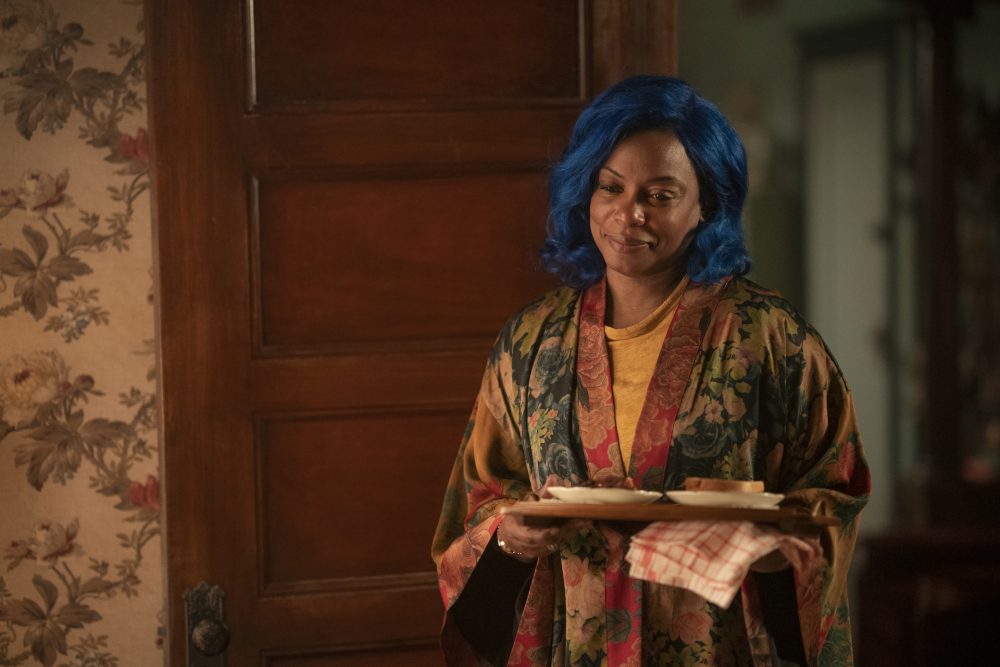
“So, I love the idea of Lovecraft because it makes us reimagine the names we give to what horror looks like. In the first episode, we’ve got the monsters killing the police. And our association, we’ve been taught to think of monsters as something that we should be afraid of, when in fact, the monsters, the ghosts that we live with, are our champions and our saviors. But we have been taught to associate that with them. But now, we are, we are being given permission to unlearn that. So, I just wanted to say that.”
What Ellis said about reclaiming darkness and the negative connotations placed upon it in both a spiritual and physical sense i.e. colorism, touched me and made me revaluate how Black people see the supernatural and spiritual. While certain things might always cause one to pause and be upset over with the show, one important take away is that horror means many different things to everyone, and Lovecraft Country showed that for Black people, it’s not the what that chases us and poses the greatest danger, it’s the who.
Lovecraft Country is now streaming on HBO Max.


